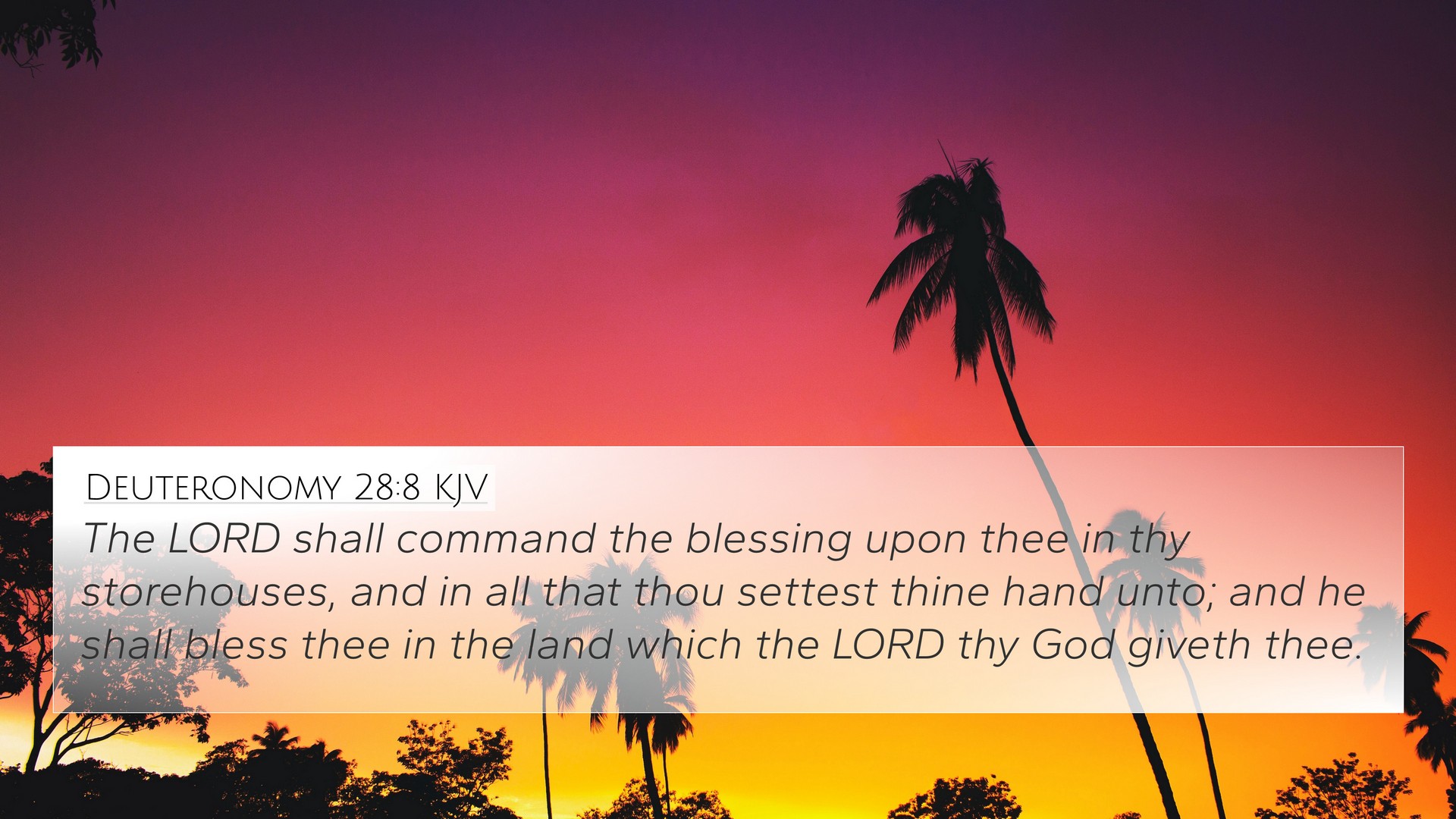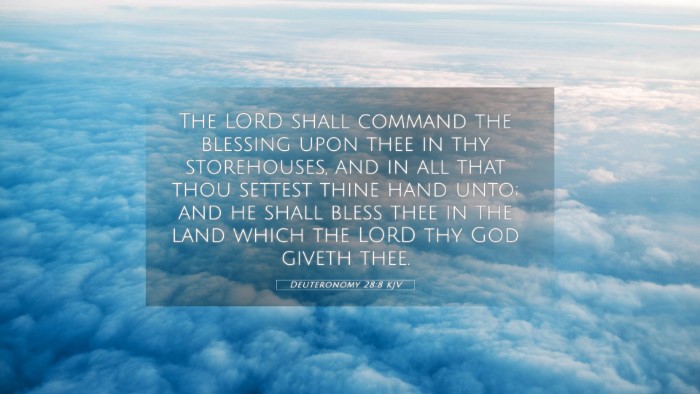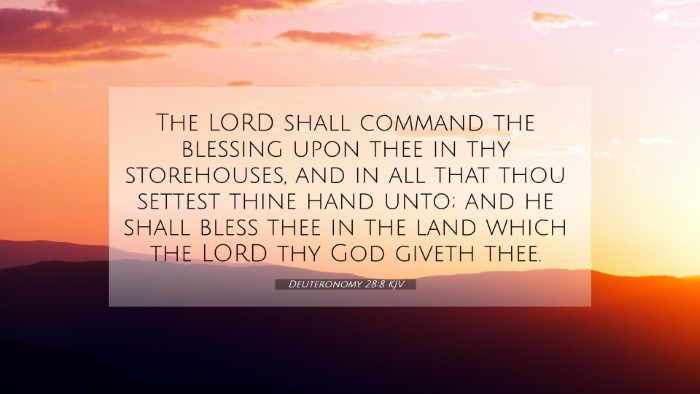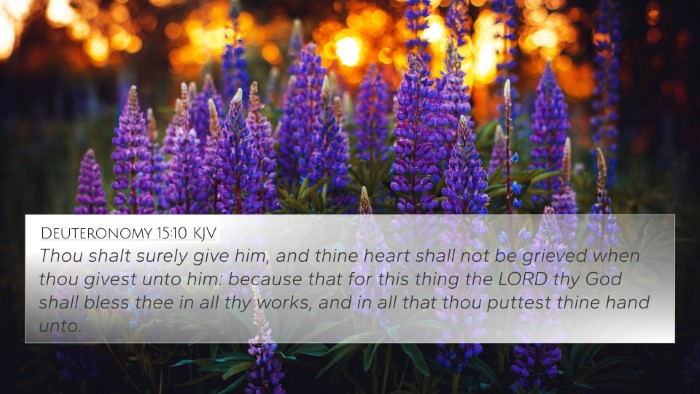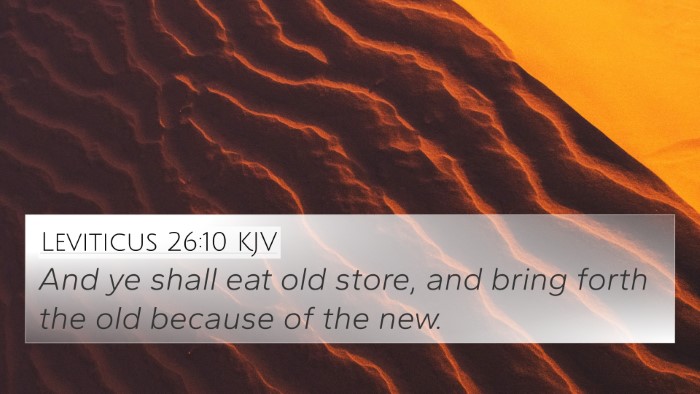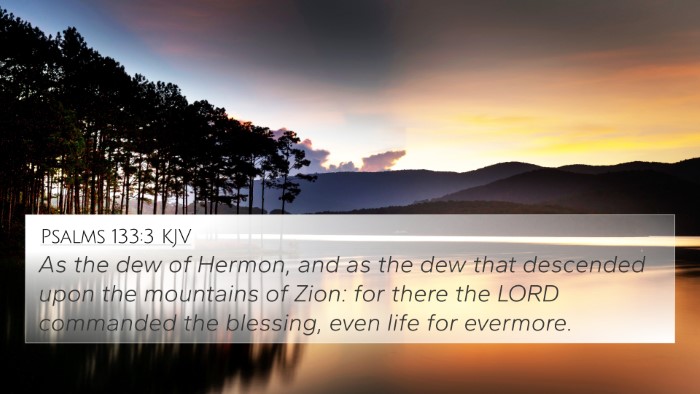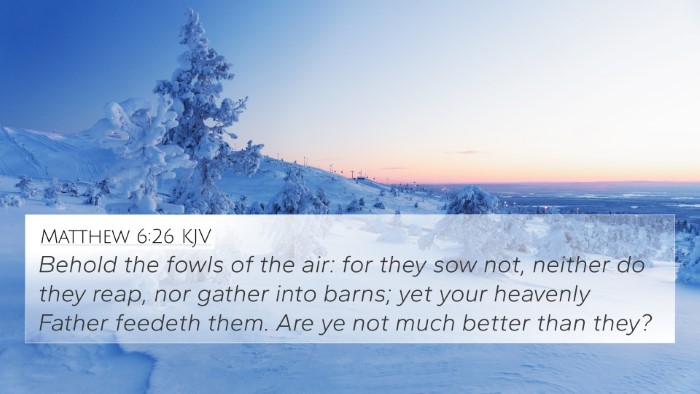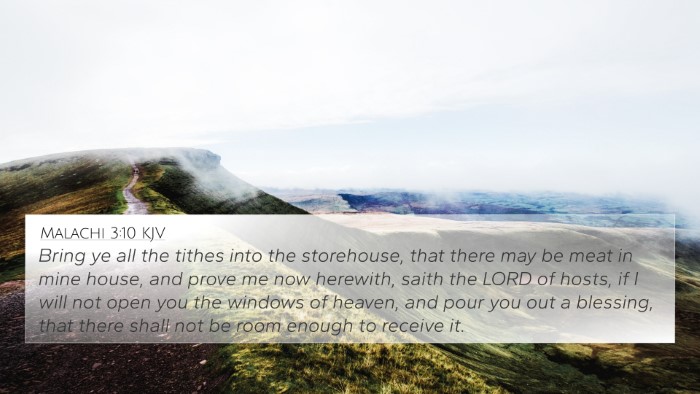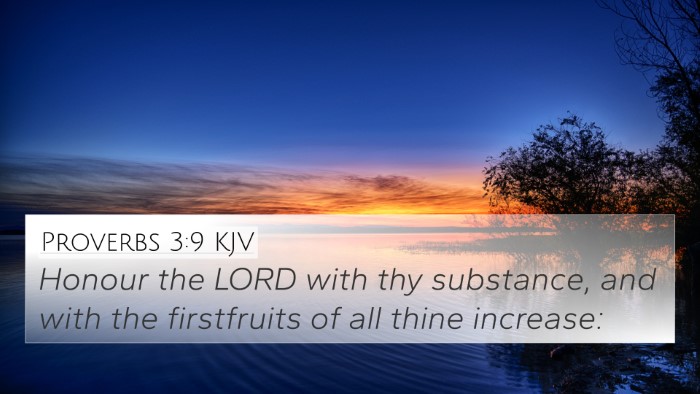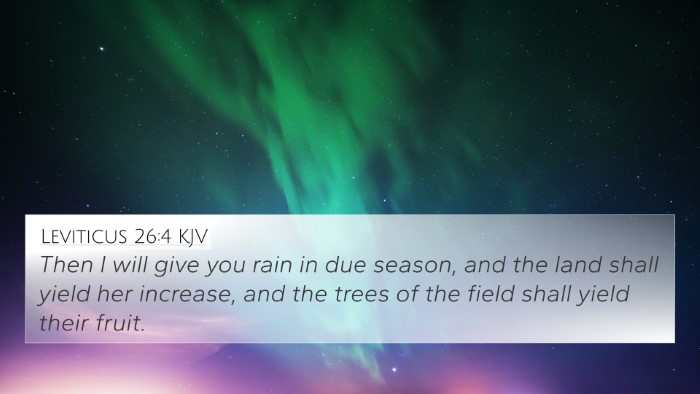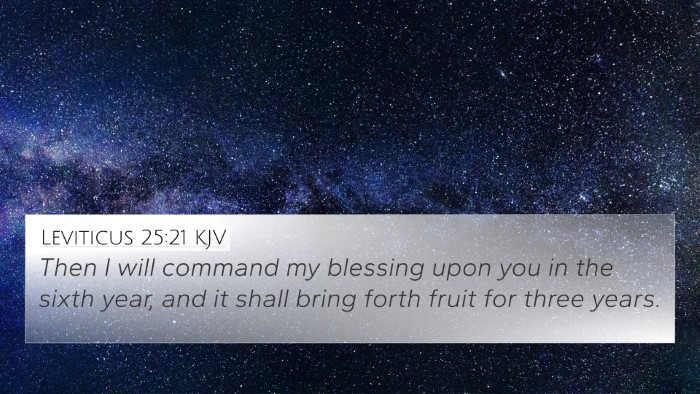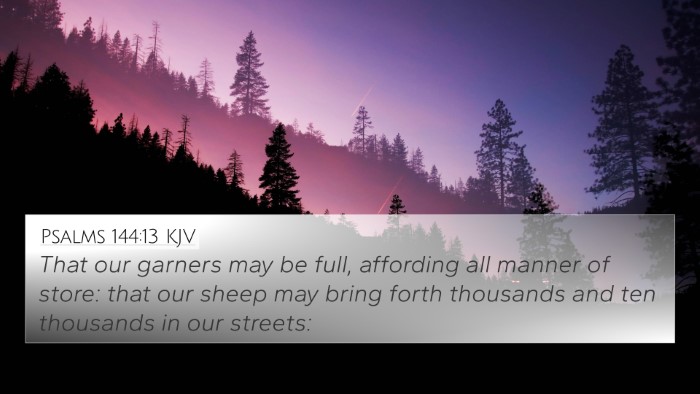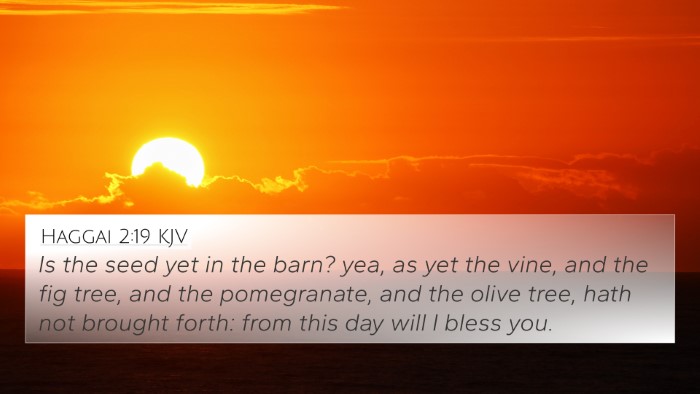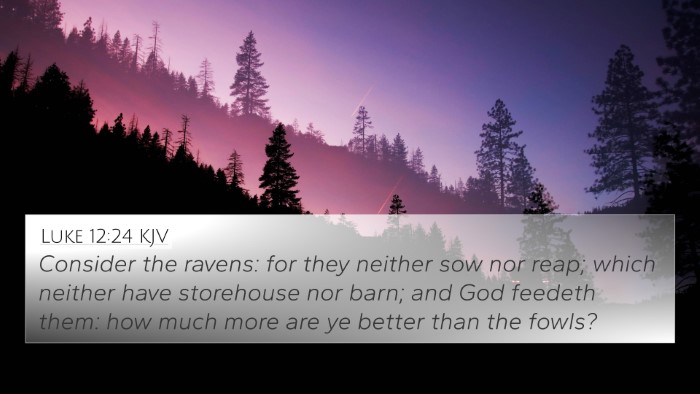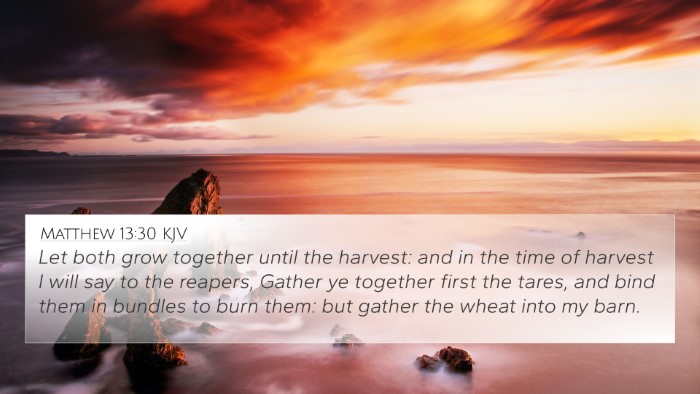Understanding Deuteronomy 28:8
Verse: "The Lord shall command the blessing upon thee in thy storehouses, and in all that thou settest thine hand unto; and he shall bless thee in the land which the Lord thy God giveth thee." (Deuteronomy 28:8)
Summary of Biblical Context
Deuteronomy 28 is part of Moses' farewell address to the Israelites, outlining the blessings for obedience and the curses for disobedience. This particular verse emphasizes God's promise to bless the faithful, specifically in their endeavors and in the land He provides.
Interpretation from Public Domain Commentaries
-
Matthew Henry's Commentary:
Henry highlights that God’s command to bless indicates His active involvement in providing prosperity and success for His people. The 'storehouses' signify abundance and security in provision, underscoring the idea that blessings await those who adhere to God’s commandments.
-
Albert Barnes' Notes:
Barnes notes that the blessings commanded by God are comprehensive, including not only agricultural prosperity but also success in all of one's work. This reflects God’s favor over the Israelites as they enter the promised land, reassuring them of His continued support.
-
Adam Clarke's Commentary:
Clarke remarks on the importance of the condition underlying the blessings, suggesting that these promises are contingent upon remaining faithful to God’s covenant. He emphasizes that this verse serves as a reminder of the covenant relationship between God and His chosen people.
Thematic Connections
This verse exemplifies the broader biblical theme of divine blessing associated with obedience and faithfulness to God. Key connections can be drawn to other passages in the scripture that reflect similar ideas:
- Malachi 3:10: Highlights God's promise of blessings when one brings the full tithe.
- Psalms 1:3: Compares the righteous man to a tree planted by streams of water, yielding fruit in season.
- Joshua 1:8: Associates success and prosperity with meditating on the Law of God.
- Proverbs 10:22: States that the blessing of the Lord brings wealth without painful toil.
- Philippians 4:19: Declares God's promise to supply all needs according to His riches in glory.
- 1 Chronicles 22:13: Encourages obedience to God’s commandments for success and prosperity in building the temple.
- Email 2:15: Reiterates the connection between God’s blessing and one’s fidelity to His commands.
Bible Verse Cross-References
To better understand Deuteronomy 28:8, it is helpful to explore its connections with other Bible verses:
- Genesis 39:3: "And his master saw that the Lord was with him..." - Reflects Joseph’s blessing through God’s presence.
- Isaiah 1:19: "If you are willing and obedient, you will eat the good things of the land." - Ties obedience to receiving blessings.
- Matthew 6:33: "But seek first his kingdom and his righteousness, and all these things will be given to you as well." - Emphasizes God's provision for those who prioritize Him.
Implications for Modern Believers
Deuteronomy 28:8 serves as a powerful reminder that God desires to bless His people. The promises found here encourage believers today to seek faithfulness in their spiritual lives and to expect God’s provision in their work and endeavors.
Practical Application
Believers are encouraged to:
- Engage in prayer and obedience to God's commands.
- Recognize the divine involvement in their daily activities.
- Maintain a focus on God’s provision and abundance in their lives.
Resources for Further Study
For those wishing to delve deeper into cross-referencing Bible texts, various tools and resources are available:
- Bible Concordance: Use a concordance to find related verses and themes.
- Bible Cross-Reference Guide: This can help identify links between scripture passages.
- Bible Chain References: A method of studying the connections between various verses for deeper understanding.
Conclusion
Deuteronomy 28:8 encapsulates the assurance of God’s blessings linked to obedience. It serves both as an encouragement and a call to faithfulness. By drawing connections to other scriptural texts, one can appreciate the rich inter-Biblical dialogue that supports the themes of divine provision and prosperity.
